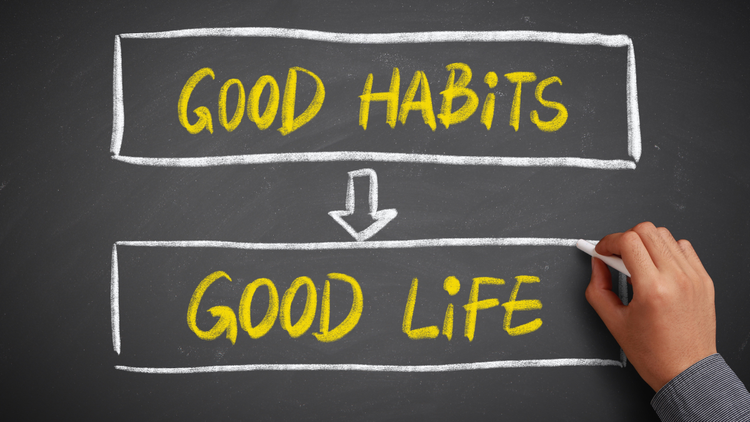How to Switch Off After Work When Your Brain Won’t Let You

You’ve closed your laptop. Technically, the day is done. But your brain has other ideas.
You're still thinking about that awkward conversation. Replaying the meeting that didn’t go quite right. Half-writing tomorrow’s email in your head while reheating dinner. Even though you’ve left work, work hasn’t quite left you.
Sound familiar?
In today’s always-on world, switching off isn’t just about shutting down your computer. It’s about retraining your mind to let go. Because true recovery doesn’t happen when your body stops moving; it happens when your brain does.
Why it’s so hard to switch off these days
It used to be easier. Work ended when you left the building. You had a commute to decompress, a change of clothes to mark the transition, a physical line between the professional and the personal.
Now, most of us live and work in the same physical and mental space. You might finish work at your kitchen table, answer messages on your couch, and check Slack while brushing your teeth. No wonder your brain struggles to tell the difference.
Add to that the mental residue of unfinished tasks and unprocessed conversations, and you’ve got the perfect recipe for cognitive carryover. Psychologists call it the Zeigarnik effect — your brain tends to fixate on what’s incomplete. So even when you’re “off,” part of you is still mentally working.
The cost of never switching off
You might think that constant accessibility makes you more productive. But without deliberate recovery, your cognitive performance actually declines. Your focus weakens. Your emotional bandwidth shrinks. Your sleep suffers. You start the next day depleted instead of recharged.
Over time, this can build into burnout, where even rest doesn’t feel restorative, and the simplest tasks feel heavy.
How to retrain your brain to switch off after work
Switching off is a skill. Not a single decision, but a set of small rituals that help your brain shift gears. The goal isn’t silence or perfect relaxation. It’s creating enough space between you and your work to recover well.
Start by building a shutdown routine. Something small but consistent. Close your laptop. Tidy your space. Write down what’s unfinished and what you’ll tackle tomorrow. Give your brain a clear message: we’re done for now.
Next, change your sensory environment. Move to another room. Step outside. Change into different clothes or put on music that signals rest. These cues matter. They tell your nervous system it’s safe to downshift.
Then, offload lingering thoughts. If your brain keeps circling the same worries, get them out. Use a notebook, a voice note, or even a scrap of paper. You don’t need to solve everything. Just remove it from your mental inbox.
If you’re working from home, pay attention to environmental repetition. Try to separate your working space from your relaxation and living space, even if it’s just symbolic. A different light setting, scent, or background noise can help your mind distinguish work mode from off mode.
Protect the first hour after work. Avoid jumping straight into errands, doomscrolling, or multitasking. Give yourself a window for recovery. It could be a walk, a workout, music, a shower — something that grounds you in your body and creates a sense of shift.
When your brain still won't let go
There will be days when the thoughts cling tighter. That’s okay. The goal isn’t to eliminate all work-related thinking. It’s to reduce its grip.
When your mind keeps looping, try to redirect it gently. A breathing exercise, short meditation, or physically engaging activity can help. Some people find relief in fiction or creative play — anything that pulls focus without pressure.
Remember: you don’t need to feel perfectly calm to rest. Even partial disengagement helps.

When to pay closer attention
If switching off becomes impossible — if work thoughts are waking you up, dominating your conversations, or making it hard to enjoy anything else — it may be a sign of deeper burnout, anxiety, or poor workplace boundaries.
That’s not a sign of weakness. It’s a signal that something needs your care. Seeking support is not only valid — it’s smart. You deserve a life that includes recovery, not just resilience.
Final thought: You don’t have to earn your rest
You don’t have to finish everything to stop. You don’t need to feel calm before you’re allowed to switch off. You don’t have to earn your rest.
Your brain needs time to exhale. And you are allowed to give it that, not someday, but today.
Small signals. Simple rituals. Clear boundaries. That’s how you train your brain to stop working when work is done.
Not because you’ve given up. But because you’re learning how to live well, even when the work never ends.
—MRB
My goal is to help people thrive in a complex world. While I write as a psychologist, this content is general in nature, does not constitute a therapeutic relationship, and is not a substitute for personalised mental healthcare advice. Further, some posts may include affiliate links to resources I recommend. Read my full site policy here.





Member discussion